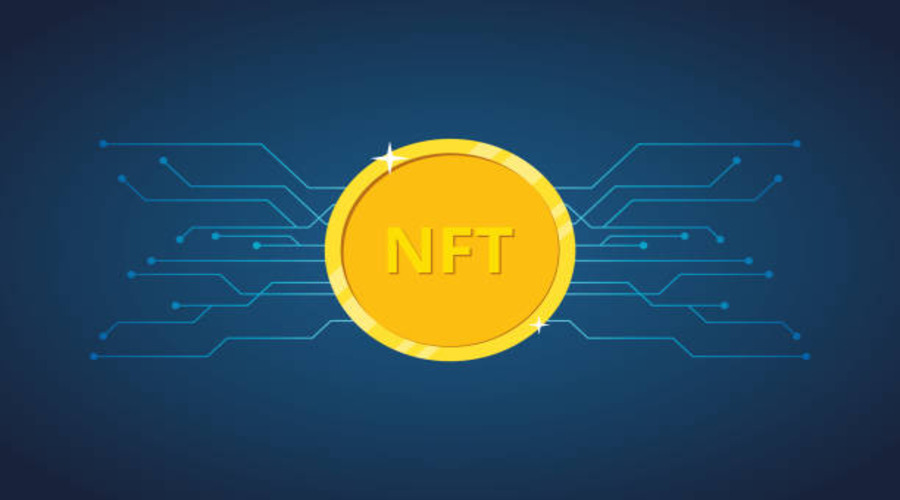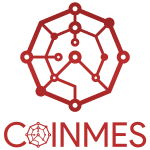In today’s digital landscape, non-fungible tokens (NFTs) have gained immense popularity, revolutionizing the art, gaming, and collectibles industries. As the demand for NFT continues to grow, ensuring secure and reliable storage for these digital assets becomes paramount. This article explores the significance of decentralized storage solutions for NFT, highlighting their benefits, types, and considerations when choosing the right solution.
Introduction
NFTs are unique digital assets that are authenticated and verified using blockchain technology. Unlike cryptocurrencies, which are fungible and can be exchanged on a one-to-one basis, NFT represents ownership of a specific item or piece of content. These can include artwork, music, videos, virtual real estate, and more. The value of an NFT lies in its scarcity, provenance, and the underlying content it represents.
What are NFTs?
NFTs, or non-fungible tokens, are cryptographic tokens that utilize blockchain technology to verify their uniqueness and ownership. Each NFT contains metadata that defines its characteristics, provenance, and ownership history. This information is stored on the blockchain, making it tamper-proof and transparent. NFTs have gained significant attention in recent years due to their potential to revolutionize digital ownership and provide new revenue streams for creators.
The Importance of Decentralized Storage in NFT
Decentralized storage solutions play a crucial role in the world of NFT. Unlike traditional centralized storage systems, which rely on a single server or data centre, decentralized storage distributes data across a network of nodes, making it more secure, resistant to censorship, and less prone to single points of failure. This is particularly important for NFTs, as they represent valuable digital assets that require long-term preservation and protection.
Challenges with Centralized Storage in NFT
Centralized storage poses several challenges for NFT. Firstly, it is vulnerable to hacking and data breaches, putting the digital assets at risk of being stolen or manipulated. Secondly, centralized systems are subject to censorship and control by a single entity or authority, limiting the freedom and accessibility of NFT. Lastly, centralized storage often lacks transparency, making it difficult to verify the authenticity and provenance of NFT.
Benefits of Decentralized Storage for NFT

Decentralized storage solutions offer numerous benefits for storing NFTs securely. Let’s explore some of the key advantages:
- Security and Data Integrity: Decentralized storage employs advanced encryption techniques to ensure the confidentiality and integrity of NFT data. By distributing the data across multiple nodes, it becomes highly resistant to hacking, manipulation, and unauthorized access. The decentralized nature of the storage network eliminates the risk of a single point of failure, making it more secure than centralized alternatives.
- Censorship Resistance: With decentralized storage, NFT creators and owners have greater control over their assets. Centralized storage systems can be subject to censorship, content takedowns, or restrictions imposed by third parties. In contrast, decentralized solutions enable peer-to-peer transactions and ensure that NFTs remain accessible and unaffected by external influences.
- Immutability and Provenance: The blockchain-based nature of many decentralized storage solutions ensures the immutability and transparency of NFT ownership records. Each transaction and update to an NFT is recorded on the blockchain, creating an immutable trail of ownership. This provenance can be crucial for verifying the authenticity and history of high-value NFTs, such as rare digital artworks or collectibles.
- Long-Term Preservation: NFTs are often considered digital assets with long-term value. Decentralized storage solutions offer durability and data redundancy, ensuring the long-term preservation of NFTs. By distributing the data across multiple nodes, these solutions prevent data loss due to hardware failures or technical issues. As a result, NFT creators and collectors can have confidence in the continued accessibility and existence of their valuable digital assets.
- Community Governance and Collaboration: Decentralized storage solutions often operate as community-driven networks. Participants in these networks can contribute storage capacity and bandwidth, becoming active stakeholders in the ecosystem. This collaborative approach fosters community governance, where participants collectively make decisions and ensure the smooth operation of the storage network. By engaging in such networks, NFT creators and owners become part of a larger community that supports and values decentralized storage solutions.
- Scalability and Flexibility: Decentralized storage networks can scale seamlessly to accommodate the increasing demands of NFTs. As the popularity of NFTs continues to grow, decentralized storage solutions can dynamically allocate storage resources, ensuring optimal performance and scalability. This scalability enables NFT marketplaces, gaming platforms, and other digital ecosystems to handle the increasing volume of NFT transactions and storage requirements.
- Cost-Effectiveness: Decentralized storage solutions can offer cost advantages over traditional centralized storage systems. By leveraging the spare storage capacity of network participants, these solutions reduce infrastructure and operational costs. Additionally, the transparent nature of decentralized networks can lead to competitive pricing models, benefiting NFT creators and owners who are conscious of their storage expenses.
Types of Decentralized Storage Solutions in NFT
Several decentralized storage solutions have emerged to address the unique needs of storing NFTs securely. Let’s explore some of the most popular options:
- IPFS (InterPlanetary File System): IPFS is a peer-to-peer network protocol that allows distributed storage and retrieval of files. It employs content-addressing, where files are identified by their content rather than their location. IPFS ensures data integrity, censorship resistance, and decentralized access, making it an ideal choice for storing NFTs.
- Arweave: Arweave is a blockchain-based storage network that offers permanent, low-cost storage for NFTs. It utilizes a unique consensus mechanism called “Proof of Access,” where miners store and replicate data to ensure its availability over time. Arweave’s architecture provides long-term storage and immutability for NFTs.
- Filecoin: Filecoin is a decentralized storage network that incentivizes participants to provide storage capacity and bandwidth. Miners on the Filecoin network earn tokens by renting out their storage space to store and retrieve data. This scalable and secure solution offers a robust infrastructure for storing NFTs.
- Storj: Storj is a decentralized cloud storage platform that enables individuals and organizations to rent out their spare storage space. It leverages end-to-end encryption and a distributed network of nodes to ensure data privacy and availability. Storj provides a reliable and cost-effective storage solution for NFTs.
- Sia: Sia is a blockchain-based decentralized storage platform that allows users to rent storage space from hosts worldwide. It utilizes smart contracts to manage storage agreements and offers high redundancy and durability. Sia’s decentralized architecture makes it a suitable option for storing NFTs securely.
Comparing Decentralized Storage Solutions
When choosing a decentralized storage solution for NFTs, it’s essential to consider factors such as cost, performance, security, and community support. Each solution has its unique features and trade-offs, so evaluating them based on your specific requirements is crucial.
Considerations when Choosing a Decentralized Storage Solution
When selecting a decentralized storage solution for your NFTs, it’s essential to consider the following factors:
- Security Measures: Evaluate the security measures implemented by the storage solution. Look for features such as end-to-end encryption, multi-factor authentication, and access controls to ensure the confidentiality and integrity of your NFTs.
- Network Reliability: Assess the reliability of the decentralized storage network. Consider factors such as uptime, network latency, and overall network stability. A robust and reliable network ensures that your NFTs remain accessible to you and potential buyers at all times.
- Scalability and Performance: Consider the scalability and performance capabilities of the storage solution. As your collection of NFTs grows, you need a solution that can handle the increased storage demands and provide fast retrieval speeds. Look for solutions that offer scalability options and have a track record of delivering high-performance services.
- Cost and Pricing Structure: Evaluate the cost and pricing structure of the storage solution. Compare the storage fees, transaction costs, and any additional charges associated with using the platform. Consider your budget and the value of your NFT collection to determine the most cost-effective option.
Implementing Decentralized Storage for NFT
To implement decentralized storage for NFTs, follow these steps:
- Research and evaluate different decentralized storage solutions based on your requirements.
- Choose a suitable solution that aligns with your budget, security needs, and scalability requirements.
- Set up an account or connect your preferred storage solution to your NFT marketplace or platform.
- Follow the provided documentation or guidelines to integrate the storage solution into your NFT creation and management workflow.
- Test the storage solution by uploading and retrieving sample NFTs to ensure its performance and reliability.
Conclusion
Decentralized storage solutions play a vital role in ensuring the security, integrity, and accessibility of NFTs. By leveraging distributed networks, encryption, and blockchain technology, these solutions provide a robust infrastructure for storing and preserving valuable digital assets. When selecting a decentralized storage solution, carefully evaluate factors such as security, scalability, cost-effectiveness, and data availability to make an informed decision.
FAQs
- Can I use centralized storage for my NFTs? While you can use centralized storage, it poses security and censorship risks. Decentralized storage is recommended for enhanced protection and accessibility.
- Are decentralized storage solutions cost-effective? Decentralized storage solutions often offer competitive pricing, making them cost-effective options for storing NFTs.
- Can I switch storage solutions for my NFTs later on? Yes, you can migrate your NFTs to different storage solutions if needed. However, it’s important to consider the associated costs and technical requirements.
- Do decentralized storage solutions guarantee data permanence? Decentralized storage solutions provide data redundancy and replication, minimizing the risk of data loss and ensuring long-term data permanence.
- Can I sell my NFTs stored on decentralized storage platforms? Yes, decentralized storage platforms are designed to work seamlessly with NFT marketplaces, allowing you to showcase and sell your NFTs effectively.
I have over 10 years of experience in the field of cryptocurrency and have written numerous books on the subject. I am a highly sought-after speaker and consultant on all things crypto, and my work has been featured in major media outlets such as The Wall Street Journal, CNBC, and Forbes. I am also a regular contributor to CoinDesk, one of the leading publications in the space. In addition to my writing and consulting work, I am also an advisor for several blockchain startups.

